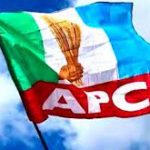2021 Appropriation: Experts Okay Monitoring, Supervision For Excellent Budget Performance
African News, Business News, Featured, Latest Headlines, News Thursday, January 21st, 2021
By Tajudeen Balogun, Head, Nigeria Bureau, Lagos
(AFRICAN EXAMINER) – Business institutions and budget specialists in the country have agreed to constitute implementation, monitoring and supervision body, so as to influence the economic policies makers to be more proactive, disciplined and efficient, as well as ensure excellent budget performance in every fiscal year.
The Abeokuta Business School ABS, Crescent University’s Director, Dr. Jubril Salaudeen while reacting to the budget and business professionals, at the school’s “Colloquium on 2021 FGN Budget”, Tuesday in Abeokuta, the Ogun State capital, declared that the idea of budget implementation monitoring was a brilliant one and a pragmatic approach to put the government on its toes – towards a substantial compliance to budget provisions.
While admitting that it was a critical but a ‘virgin’ aspect of budget debate, to the ABS, Dr. Salaudeen disclosed that the approach was another good checks and balance mechanism in the budget administration and implementation.
“If you launch Sukuk to fund a road project, the public should be able to verify and confirm” that the money collected was judiciously spent.
An Islamic microfinance Bank and SME development expert, Dr. Salaudeen stressed that the ABS would subsequently consider including the concept in its next Budget review exercise, restating that budget implementation monitoring would promote diligence, transparency and accountability in government.
While linking the discouraging state of Nigeria’s economy to negligence and ineptitude, Dr Salaudeen stressed that taking monitoring of budget as a serious task, was another good way of taking the leadership to task.
Speaking against the background of assumptions for the budget which includes: $40 per barrel; oil production at 1.86m barrels bpd, the exchange rate of N379 to US 1$; and an “ambitious growth rate of 3% in the face of a total projected expenditure of N13.588tn, a revenue target of N7.986tn which leads to a deficit of N5.602tn”, the ABS Faculty/Researcher, Dr. Tajudeen Adebayo while reviewing the budget, observed that a healthy revenue generation and expenditure frameworks were needed by the Federal Government FG with about N7.986 trillion projected revenues to be realized in funding over N13.6 billion expected spending in the 2021 budget”.
Following this, the ABS, Dr. Adebayo said, deemed it highly expedient to advise the FG to “strengthening the frameworks for greater transparency and accountability at all FG’s revenue collection and expenditure management points and in all processes”.
Others approaches include: “Publishing the overall rules for the various license award processes in Nigeria; Intensifying efforts to make significant gains in 2021 fiscal year from those sources including its special accounts, special levies account, domestic fines, asset recoveries, stamp duty, signature bonus, and receipt from the auction of oil licenses”.
He also listed blocking all known avenues for revenue leakages in all the 60 GOEs and MDAs; increasing public private partnerships through well prepared projects involving MDAs, the Infrastructure Concession Regulatory Commission and the private sector; reduce borrowing, establish special purpose vehicles that gather and aggregate resources from a plethora of sources including institutional and retail investors to fund priority capital projects.
Apart from these, Dr. Adebayo whose core area of calling are Economics and Statistics, also urged the FG to stop the culture of project neglect and maintain the tradition of keeping proper stock of the national wealth by focusing more on the completion of as many ongoing projects as possible, in the 2021 fiscal year, instead of starting new projects without well established necessities.
For the businesses to achieve socio-economic development, the ABS Faculty/Researcher urged the FG to implement all tax policies contained in the budget; push for amendment of key tax legislations, financial reporting and other fiscal rules for companies operating in the Free Trade Zones, tax exemptions, incentives and rebates.
On the lingering power crisis, Dr. Adebayo advised the government to ensure that the service reflective electricity tariffs help to resolve liquidity crisis in the industry, as well as find the lasting solution to the controversial estimated billing corruption-prone practice in the power sector.
Despite that the budget promises to impact positively on the economy, Dr. Adebayo identified the country’s growing debt profile as a result of the projected budget deficit of N5.602 trillion to be financed mainly, through borrowing; the need to diversifying the economy from its over-dependence on crude oil export and its price volatility in international oil market; increasing the revenue generation from all government MDAs and addressing revenue leakages in government finances; meeting the daily volume of crude oil production of 1.86 million (bpd); controlling the growing recurrent spending on payment of salaries and overheads as major concerns, especially on how to actualize the provisions of the year’s fiscal financial document as major concern areas.
“As a way out therefore, the FGN can borrow safely from the private sector to finance the 2021 budget deficit. The prospect can thus, be bright for Nigeria with approved spending of N4.370 trillion by FG in the current fiscal year, as that will inject more funds into the economy, and through the multiplier effect, rejuvenate the level and quality of infrastructure to: improved productive capacity through increase investments and job creation increased aggregate demand’s higher economic growth higher tax revenues to the government and, consequently, dowse the deficit and market failure over time.
“The onus on the FG is therefore, in the area of accountability, corruption-free and strong commitment in revenue generation, blocking leakages of resources and eradicating waste in public expenditure” the ABS researcher stressed.
For all the provisions of the budget to come to reality, Dr. Adebayo recommended key “reforms’’ that would have to be implemented with increasing vigour to improve on revenue collection and control mismanagement in public – in the fiscal year and beyond.
While fielding questions from journalists, the ABS Coordinator, Dr Muideen Isiaka asserted that regular budget review and implementation monitoring would increase the level of budget education among the public and hold the Leadership to account.
Recall that President Muhammadu Buhari on Thursday, December 31, 2020 signed the 2021 Appropriation Bill of N13, 588,027,886,175 into law.
The budget titled: Budget of ‘’Recovery and Resilience’’ estimate was increased by the sum of N505, 607,317,942 from the estimate of N13, 082, 420, 568,233 when presented to the joint sitting of National Assembly by President Buhari on October. 8, 2020.
The budget comprises total Capital Supplementation of N1,060,751,051,650; Statutory Transfer stands at N496,528,471,273; recurrent Expenditure of N5,641,970,060,680 and Gross Domestic Product (GDP) growth rate of 3.00 Per cent.
While the Appropriation provides N3,324,380,000 trillion for debt servicing the sum of N5,641,970,060,680 is voted for Recurrent Expenditure; and N4,125,149,354,222 for Capital Expenditure.
The event was attended by budget and business experts and other professionals.
The Abeokuta Business School is a leading graduate school of management in Africa, Located in Abeokuta – Ogun State, Nigeria.
Related Posts
Short URL: https://www.africanexaminer.com/?p=59027






















